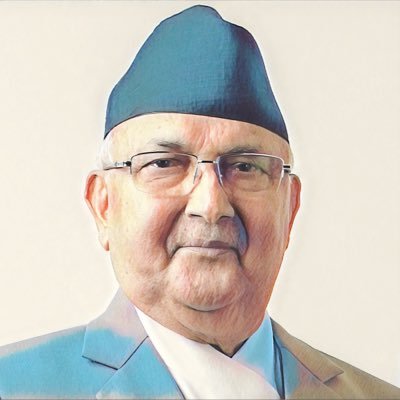Prime Minister Oli undergoes plasmapheresis, health normal
- Unhealthy plasma being replaced with fresh plasma
- Likely to remain in Singapore for at least 10 more days
Kathmandu, August 25
Prime Minister KP Sharma Oli has been undergoing plasmapheresis since Friday and his health is said to be normal.
This was revealed by the PM’s Secretariat team member Chetan Adhikari, quoting Dibya Singh Shah, the PM’s personal doctor. PM’s Chief Adviser Bishnu Rimal tweeted today that according to Shah the procedure would be repeated for some time.
The PM was admitted to Singapore-based National University Hospital twice this month. He had returned from Singapore on August 12 after getting his health check-up done in the hospital but had to go back for further treatment on August 22.
Plasmapheresis is a process in which unhealthy plasma (with antibodies) is taken out and fresh plasma is transfused into the patient, said Rishi Kumar Kafle, senior nephrologist at National Kidney Centre.
“This procedure is done in cycles usually on alternate days for up to seven times. So it will take at least two weeks for the PM to complete the procedure,” Kafle added.
“If this procedure works, the PM will recover and the same kidney can work for years. But if it fails then dialysis or a kidney transplant is necessary,” said Kafle.
The PM’s personal doctors have said that creatinine level in the PM’s body is high. Creatinine level above 2.0 mg/dL in someone who has undergone kidney transplant is harmful. “It means that only 30 per cent of the kidneys are functioning well. Creatinine could be regained by transfusing plasma in the blood through plasmapheresis. The process is used when the injections and pills used for removing antibodies do not work properly,” Kafle, the kidney expert, told THT.
If this procedure doesn’t work in a patient then it decreases the functioning of the kidney. If the functioning of the kidney is 10 per cent or below then transplant is necessary.
One can’t undergo kidney transplant when there are antibodies in the body. S/he needs to wait until the antibodies are removed, added Kafle.
It takes time for a kidney functioning to dip below 10 per cent, depending on multiple factors such as diet, medicine and lifestyle, said Kafle.
Creatinine test is performed to find out whether a kidney is functioning well or not. For a healthy kidney, the creatinine level is below 1.4 mg/dL.
Oli, who got his kidney transplanted in 2007 in New Delhi, has regularly undergone routine health check-up in foreign countries. He was admitted to the Singapore-based hospital in 2014 as well and was treated for an infectious swelling in his right hand. He had also undergone health check-up at Bumrungrad International Hospital in Bangkok.






